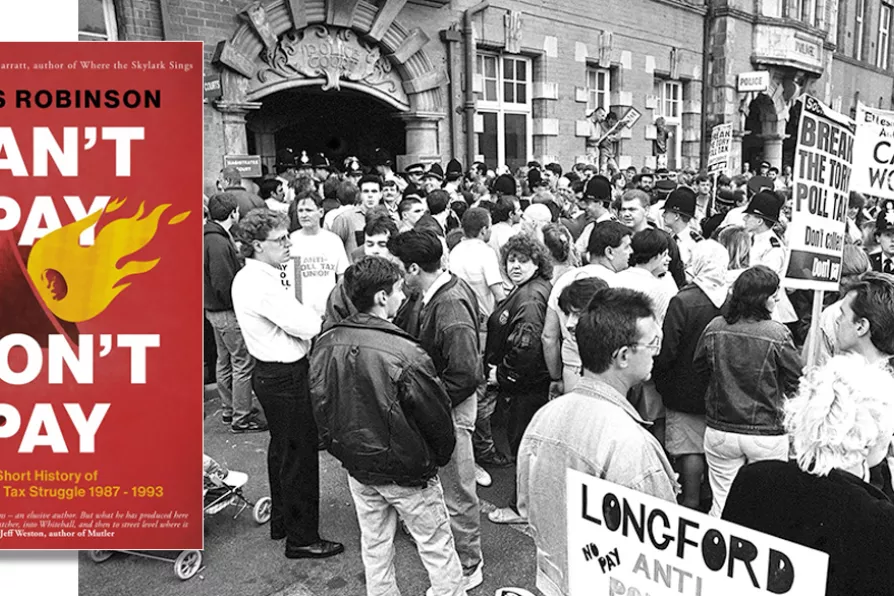JOHN GREEN, MARIA DUARTE and ANGUS REID review Fukushima: A Nuclear Nightmare, Man on the Run, If I Had Legs I’d Kick You, and Cold Storage

 More than 300 protesters demonstrate against the poll tax outside the magistrates' court in Warrington, Cheshire where the first of 5,000 people charged with non-payment of the tax was appearing.
More than 300 protesters demonstrate against the poll tax outside the magistrates' court in Warrington, Cheshire where the first of 5,000 people charged with non-payment of the tax was appearing.
Can’t Pay, Won’t Pay: A Short History of the Anti-Poll Tax Struggle 1987–1993
Chris Robinson, Thinkwell Books, £10
A LESSON for the Labour leadership lurks at the moral core of this timely history of the poll tax and the juggernaut of rebellion against it by working people.
Chris Robinson’s book reminds today’s leaders — and the wider labour movement — that the unjust, cynical “community charge” as it was euphemistically called was defeated on the streets, in parlours and in pubs, and not in Parliament.
The abject failure of the then Labour leader, Neil Kinnock, and his party’s cowardly siege of its own left wing in the miserably deluded hope that this would reward them at the ballot box comes across on every page.

In the final part of a serialisation of his new book, JOHN McINALLY explains how in 2018, after years spent rebuilding the PCS into a leading force against austerity, a damaging rupture emerged from within the union’s own left wing

GAVIN O’TOOLE welcomes, and recommends a a candid, evidence-based record of Britain’s role in the slaughter visited by Israel upon the Palestinians

In part II of a serialisation of his new book, JOHN McINALLY explores how witch-hunting drives took hold in the Civil Service as the cold war emerged in the wake of WWII










